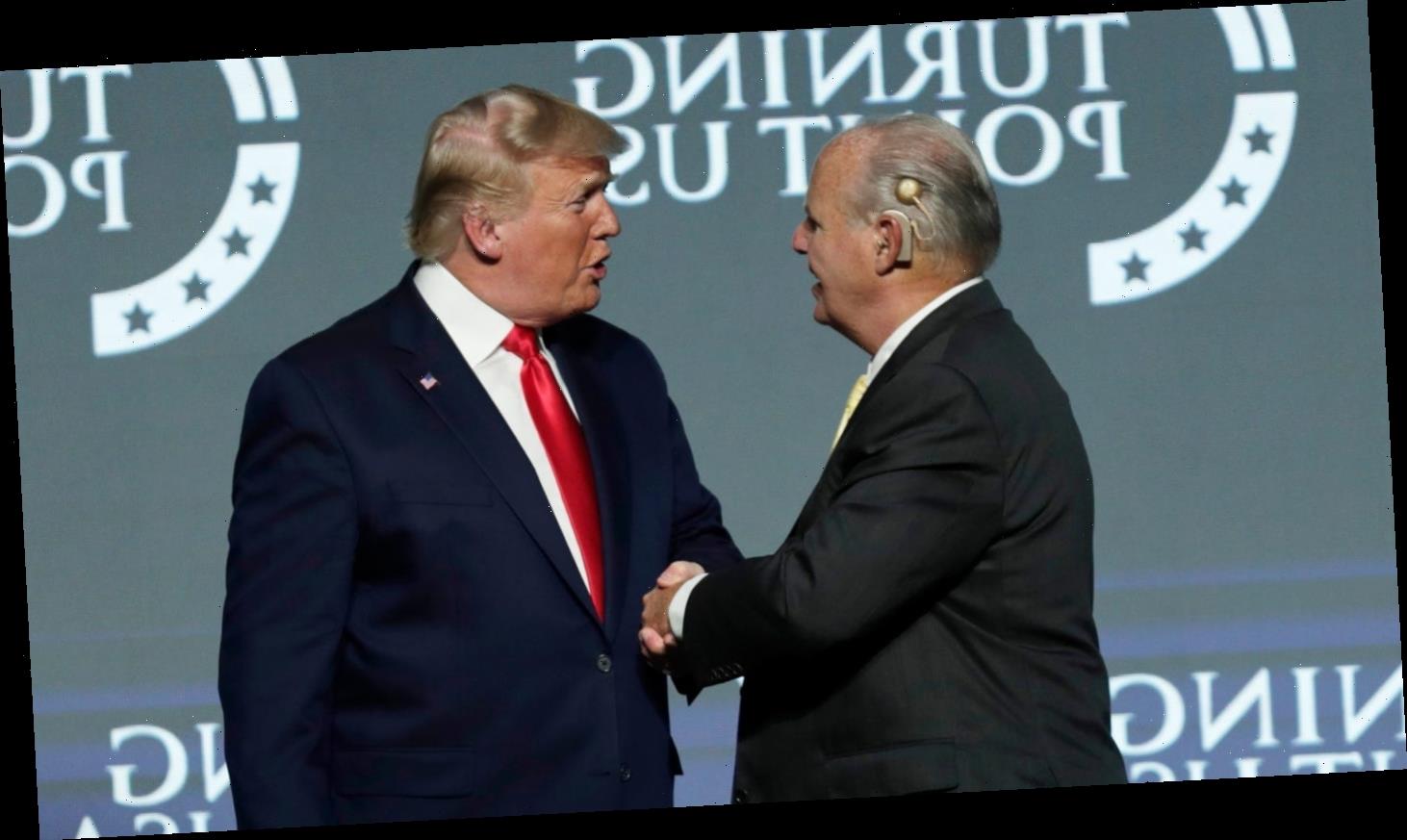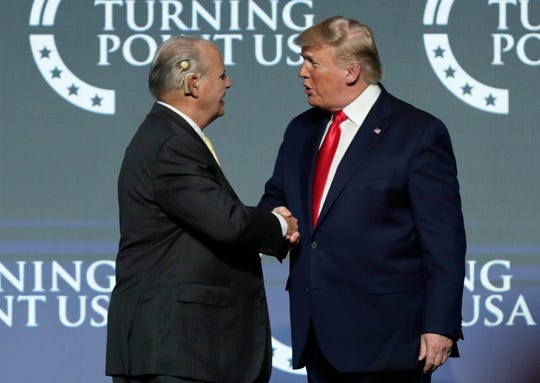During Black History Month, with the series 28 Black stories in 28 days, USA TODAY Sports examines the issues, challenges and opportunities Black athletes and sports officials face after the nation’s reckoning on race in 2020.
In 2003 the late Rush Limbaugh said something extremely racist.
Limbaugh saying something disgracefully offensive wasn't unusual. But what happened on that day remains one of the great cautionary tales for the sports universe, should never be forgotten, and that lesson is relevant today.
It's that extremism can reach not just the darkest corners but also shine in the blazing light. It can happen right in front of us, including on the set of ESPN.
That day, Limbaugh went on a staggeringly racist rant about quarterback Donovan McNabb.
"Sorry to say this, I don't think he's been that good from the get-go," Limbaugh said. "I think what we've had here is a little social concern in the NFL. The media has been very desirous that a Black quarterback do well. There is a little hope invested in McNabb, and he got a lot of credit for the performance of this team that he didn't
deserve. The defense carried this team."
Rush Limbaugh and President Donald Trump in 2019, in West Palm Beach, Florida. (Photo: Luis M. Alvarez/AP)
This simply wasn't true. At that point, McNabb had been to two straight NFC title games and was a three-time Pro Bowler. McNabb was a flawed quarterback but he was a solid one.
Soon after his remarks, Limbaugh was fired. But the moment was important because it was the first incident of ESPN mainstreaming racial extremism. It was also one of the first mainstreamed sports conspiracy theories.
It can't be stated just how staggering that moment was. For most of its existence ESPN went out of its way to be non-offensive. Limbaugh was a dramatic shift in that approach, and he delivered what the network wanted, which was acidic commentary.
After Limbaugh's remarks USA TODAY quoted Mark Shapiro, then ESPN's executive vice president, as saying: "This is not a politically motivated comment. This is a sports and media argument. Rush was arguing McNabb is essentially overrated and that his success is more in part (due) to the team assembled around him."
"We brought Rush in for no-holds-barred opinion. Early on, he has delivered," Shapiro said.
Limbaugh, however, wasn't making a media argument. He was mainlining racism.
On his radio show, Limbaugh did this all the time, and you can even trace a direct line from Limbaugh to the attacks on the Capitol last month. And while sports has always been filled with ugly bigotry and white supremacy, and while we even saw horrific moments from sports broadcasters before, Limbaugh's remarks were significant because of the platform where he made them.
Fortunately, mainstream sports media has been exempt from any Limbaugh type figure since.
But looking back, it was closer than maybe we thought, and looking forward, it's closer than we want to admit.
It's notable that Limbaugh made his comments as Black quarterbacks, long discriminated against, started to get a foothold in professional football. By October of that 2003 season, ten of 32 teams started a Black quarterback at least one game, according to the Associated Press.
It's also not a coincidence that as Colin Kaepernick's movement took hold, he faced relentless attacks from the right. The entire sports version of the Black Lives Matter movement did. As this movement grows, no one should be stunned if there's another attempt at a sports version of Limbaugh.
Would you be shocked if Fox tried to use Tucker Carlson as an NFL analyst?
The intersection of sports and politics has gained more steam, and to some, the vitriol that's developed in the political world would be welcome in sports.
"It's sad that you've got to go to skin color," McNabb told the Philadelphia Daily News in 2003. "I thought we were through with that whole deal."
We weren't. We aren't.
And that's part of the lesson of sports Limbaugh. We shouldn't forget it.
Source: Read Full Article






